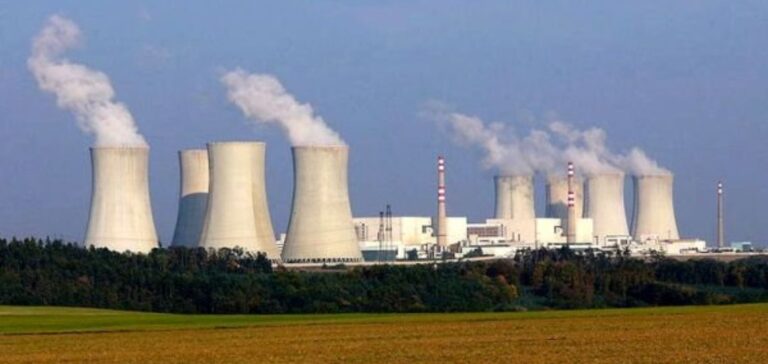The approvals, made at a meeting of the State Executive Council on July 31, chaired by Premier Li Qiang. They mark the first approvals of Chinese nuclear projects until 2023.
Nuclear Expansion in China: Approval of 10 New Reactors in 2022
By 2022, a total of 10 new reactors have been approved. “Safety and quality will be the top priority in the construction of these projects,” said the State Council in a statement. In a statement to the Hong Kong Stock Exchange, China General Nuclear (CGN) said that units 5 and 6 at the Ningde plant would be equipped with Chinese-designed HPR1000 (Hualong One) pressurized water reactors.
“Currently, the company and Ningde Second Nuclear Power Co Ltd are carrying out various preparatory works for the construction of Ningde Unit 5 and Unit 6 in an orderly fashion,” he said.
“Construction will begin once the construction permit for the nuclear power plant has been obtained from the National Nuclear Safety Administration.”
CGN noted that Ningde was the first nuclear power plant to be built. And commissioned in Fujian province. The plant currently comprises four 1018 MWe CPR-1000 reactors. Which were commissioned between April 2013 and July 2016.
“By June 30, 2023, the cumulative electricity on the grid of the four units in the first phase of the project is 257.9 billion kilowatt-hours,” he said.
CGN also said that two Hualong One units have been approved as units 1 and 2 of the Shidaowan plant “under the Huaneng Group, which is fully participating in CGN’s construction of the project”. China Huaneng noted that both units “have already undergone a comprehensive safety assessment and have been integrated into the national plan”.
He added: “The Shidaowan Nuclear Power Plant Phase I expansion project is the second large-scale pressurized water reactor nuclear power project developed by China Huaneng Holdings after the Changjiang Nuclear Power Plant Phase II project.”
The Shidaowan site is already home to the High Temperature Gas-Cooled Reactor-Pebble-bed Module (HTR-PM), which reached full power for the first time in December 2022. The HTR-PM features two small reactors driving a single 210 MWe turbine. It is owned by a consortium led by China Huaneng (47.5%), with the subsidiary China Nuclear Engineering Corporation (32.5%) and Tsinghua University’s Institute of Nuclear Technology and New Energy (20%), which is the R&D leader.
China: Approval for Units 1 and 2 of the Xudabao Power Plant
CNNC subsidiary China Nuclear Power Co Ltd has informed the Shanghai Stock Exchange of the approval of units 1 and 2 of the Xudabao (Xudapu) power plant. Each unit will have a capacity of 1,291 MW.
“CNNC Liaoning Nuclear Power Co Ltd, which is controlled by our company, is the owner unit of the approved project, responsible for project investment, construction and operation management,” noted CNNC.
“At present, the project site is being regularly and orderly promoted various preparatory works before construction begins.”
The Xudabao project was initially to comprise six Chinese-designed CAP1000 reactors, with units 1 and 2 in the first phase. Site preparation began in November 2010. The National Development and Reform Commission approved the project in January 2011. China’s National Nuclear Safety Administration announced in April 2014 that it approved the site selection for Xudabao Units 1 and 2.
However, construction of these units has not yet begun. However, with a change in plans, construction of two Russian-supplied VVER-1200 reactors under Xudabao units 3 and 4 began in July 2021 and May 2022, respectively. Construction of the six approved units represents an estimated total investment of CNY120 billion ($16.8 billion), reported China Daily.






















